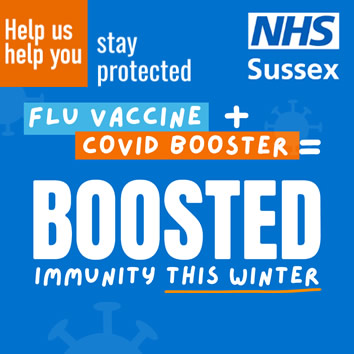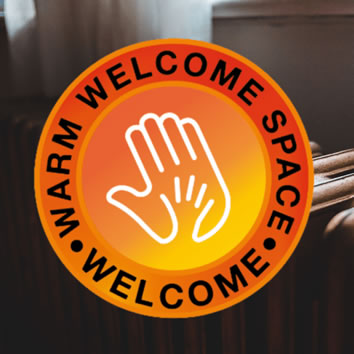Protect yourself with the flu vaccine
Flu is not a ‘bad cold’. Colds and flu share some of the same symptoms (cough, sore throat), but are caused by different viruses. Flu can be much more serious than a cold. Flu symptoms come on suddenly and sometimes severely. They include fever, chills, headaches and aching muscles, as well as a cough and sore throat. If you get complications caused by flu, you could become seriously ill and have to go to hospital.
If you’re generally fit and healthy, you can usually manage the symptoms of a cold or flu yourself without seeing a doctor. Look after yourself by resting, drinking non-alcoholic fluids to avoid dehydration and avoiding strenuous activity. Painkillers such as ibuprofen or paracetamol can relieve aches and pains.
Cold and flu viruses are spread by droplets that are coughed or sneezed out by an infected person. Other people can breathe in these droplets or transfer the droplets to their eyes or nose, via their fingers.
You can protect yourself and others against colds and flu by:
- Having a flu jab every year if you’re aged 50 or over or in a risk group.
- Coughing or sneezing into a tissue
- Throwing a used tissue away as soon as possible
- Washing your hands as soon as possible.
Colds and flu viruses can also be passed on via infected droplets on objects or surfaces, such as door handles. To prevent passing on or getting colds and flu wash your hands regularly and avoid touching your eyes and nose.
Some people need to take extra care as they’re more at risk of serious chest complications, such as pneumonia and bronchitis. Older people are more at risk of complications. Others, including adults and children, are more at risk if they have long term chronic health conditions including asthma, diabetes, kidney or liver disease and those with lowered immunity due to disease or medical treatment.
Flu is caused by several viruses and the main circulating strains change every year, this is why you need to have a flu jab every year. Even if you do catch flu, you can also go on to catch another strain, so it’s recommended you have the flu vaccination even if you’ve recently had flu.
But flu can be more severe in certain people, such as:
- anyone aged 65 and over
- pregnant women
- children and adults with an underlying health condition (such as long-term heart or respiratory disease)
- children and adults with weakened immune systems
Anyone in these risk groups is more likely to develop potentially serious complications of flu, such as pneumonia (a lung infection), so it’s recommended that they have a flu vaccine every year to help protect them.
In addition, children “at risk” of serious illness if they catch the flu are eligible for a flu vaccine on the NHS. The flu vaccine isn’t suitable for babies under the age of six months.
You should have the vaccine whatever stage of pregnancy you are in. If you’re pregnant you could get very ill if you get flu, which could also be bad for your baby. Having the injected flu vaccine can also protect your baby against flu after they’re born and during the early months of life.
Most pharmacies offer a walk-in service and the jab takes a matter of seconds.
It is better to have the flu vaccine as soon as it becomes available, usually in October, but it’s always worth getting vaccinated before flu comes around right up until March.
Who should get the flu vaccine?
This year the flu vaccine is being offered free on the NHS to more groups than ever before. Check if you are eligible for a free flu vaccine on the NHS website.
Flu vaccine and coronavirus (COVID-19)
Flu vaccination is important because:
- more people are likely to get flu this winter as fewer people will have built up natural immunity to it during the COVID-19 pandemic
- if you get flu and COVID-19 at the same time, research shows you’re more likely to be seriously ill
- getting vaccinated against flu and COVID-19 will provide protection for you and those around you for both these serious illnesses
If you’ve had COVID-19, it’s safe to have the flu vaccine. It will still be effective at helping to prevent flu.
Coronavirus (COVID-19) vaccination
Anyone who gets COVID-19 can become seriously ill or have long-term effects (long COVID). The COVID-19 vaccines are safe and effective. They are the best way to protect yourself and others. Research has shown the vaccines help:
- reduce your risk of getting seriously ill or dying from COVID-19
- reduce your risk of catching or spreading COVID-19
- protect against COVID-19 variants.
You can read more about COVID-19 vaccination on the NHS website.
Other vaccinations for people at higher risk of illness
Pneumonia is swelling (inflammation) of the tissue in one or both lungs. It can be very dangerous and is usually caused by a bacterial infection. Pneumococcal vaccination is very effective at preventing pneumococcal infections. There are two types of pneumococcal vaccination – one for children, and one for adults.



